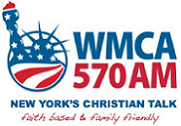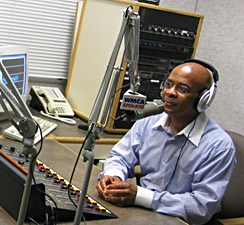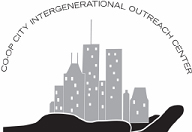
Listen to Rev. Sheldon Williams on the Principle Centered Living Radio Show!

Listening Hours EVERY...
Friday 1:30 PM - 2:00 PM Est.
Show Archive

Principle Centered Living is a moral code of business ethics based on honesty, integrity, and quality where businesses put people before profits.
Principle Centered Living Radio Show offers relevant and integrated advertising opportunities to engage your target audience. We can help you develop the ideal advertising solution.
What is the History of NBRB?
We were formed in New York state in 1980 by a small group of African American clergy who had just started using cable television, a new medium at the time. They clearly understood the power of broadcasting to households that were outside of their religious communities.The Rev. Shelton Williams thought it was appropriate for black religious broadcasters to organize to strengthen their power in negotiating reasonable prices for using the medium for the sake of spreading the Gospel. We began to meet through local, state, and national conventions where we held workshops and seminars teaching clergy how to start broadcast ministries.
Many of us are members of the National Religious Broadcasters. Even though they represent our overall interests in broadcasting the Christian message, they do not understand the unique position of black broadcasters or the history of the Black Church. NBRB knows and speaks to those needs.
Today, NBRB provides the knowledge and tutorial black broadcasters need, not only to become effective, but to make a significant impact on the lives of their people and the Black Church. We fill a much needed voice of advocacy on behalf of the church through the broadcast medium. We offer conferences, seminars, and technical assistance and some financial assistance to members.
NBRB regularly comments on governmental policies (FCC, congressional) as well as technological-related issues that we believe threaten our access to the latest broadcast tools. We do this through testimony, letter writing campaign, email blasts and other means of advocacy.
This is why NBRB vigorously supports the DTV campaign. We recognized the tremendous opportunities that were springing forth in the midst of the Digital Revolution. The Black Church did not want to be left out during these exciting times. The Digital Divide exists because there are some segments of the population who have the economic means to acquire the technology that is necessary for high speed internet access, and there are other segments of the population who live in an area where that economic prowess is not readily available. This question breaks down to race simply because the income to purchase new technologies is not readily available to minorities based upon the perpetual unemployment that engulfs the African American community.
Therefore, NBRB believes that the government has a moral and constitutional obligation to make sure that high speed internet is available to these communities, there is proper web education and that these individuals are connected to the commerce of the internet. This subsequently helps everyone. If a poor African American child in a particular geographic area learns the essentials of the internet they are far more likely to become a productive member of society than those who have no access at all.
The Co-op City Intergenerational Outreach Center, Inc. (CCIOC)
In September 2005, The Co-op City Intergenerational Outreach Center, Inc. (CCIOC) was established. The Center delivers quality services, which enhances the daily lives of community members.
The Center benefits the community by offering opportunities to engage in educational, cultural and social activities. The Corporation also provides employment opportunities to community members and is a resource for the improvement and enjoyment of their lives.
Through its development of varied yet specialized programs, the Center addresses the needs of children, youth and adults of all ages.
